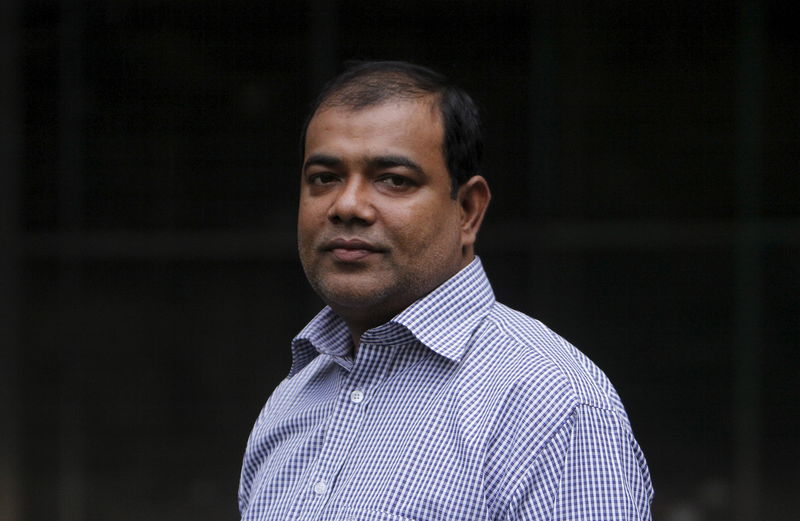By Serajul Quadir and Thomas Wilson
DHAKA/TOKYO (Reuters) - Abu Said Shekh was awakened in his cell at a Japanese immigration detention centre one recent morning and told he was leaving for the airport. After nine years of seeking political asylum in Japan, he was being deported to Bangladesh.
He was among 22 illegal immigrants, including an undisclosed number of failed asylum seekers, that were put on a state-chartered plane and flown back to Bangladesh on Nov. 25, Japan's Justice Ministry said.
Now back in Dhaka, Shekh is in hiding, saying he fears for his safety on what he calls a trumped-up court indictment on charges stemming from his membership in Awami League, then the main opposition party.
"I can't stay with my family," said Shekh by telephone. "I'm very worried about the court case and whether I'll be arrested again."
Shekh's case before a special tribunal court in Dhaka was thrown out in 2009, which said the charges were "political harassment". But because he did not personally appear in court to hear that judgment he still faces an arrest warrant, court documents in Dhaka say. The Awami League in Dhaka confirmed that Shekh was a member of the party.
Shekh featured in a Reuters investigation in July into the use of asylum seekers and other migrant workers in the Subaru automaker Fuji Heavy Industries Ltd's supply chain. At the time, he painted interior car parts, working illegally but protected from deportation while his asylum claim was being assessed.
Reuters found that firms in Subaru's supply chain, facing severe labour shortages and straining to meet soaring demand from the United States, had turned to a grey market of foreign workers, including asylum seekers.
Japan has the lowest refugee recognition rate among Organisation for Economic Cooperation and Development (OECD) countries. It accepted only 11 out of 5,000 applicants last year. In September, Tokyo announced plans to tighten restrictions on asylum seekers' right to work and placed new curbs on some reapplicants.
Last week, four Japanese non-governmental organisations criticised the "human rights and humanitarian problems" of detaining and deporting at short notice failed asylum seekers like Shekh, and other long-term residents of Japan.
POLITICAL VIOLENCE
Shekh was charged with attacking police and damaging public property with explosives during a demonstration in 2002 by the Awami League, then the party in opposition.
Political violence is common in Bangladesh, which has been alternately ruled by the Awami League, which is now in power, or the Bangladesh Nationalist Party for the past 24 years.
The recent execution of two opposition leaders for atrocities committed in the 1971 war of independence has further heightened tensions.
Shekh said he came to Japan in 2003 to escape the indictment and overstayed his visa. He first claimed asylum in June 2006 and said he applied again five years later, working throughout his time in Japan.
He was arrested on Nov. 20 and held in an immigration detention centre in Tokyo. Four days later, Shekh was told his appeal of Japan's decision not to grant him asylum had been rejected. He was deported along with 21 other Bangladeshis.
It was the fourth round of the Justice Ministry's programme of forced deportations by chartered planes. Japan deported 26 Sri Lankan and six Vietnamese nationals in 2014, and 74 Filipinos and 46 Thais the year before, the Justice Ministry said. It added that an unspecified number of failed asylum seekers were among the deportees in each round.
Over 5,500 people were deported from Japan last year, government data show. It does not say how many of them were failed asylum seekers like Shekh.
Opening up to immigration remains politically unpalatable in Japan, despite severe labour shortages caused by an ageing population. Prime Minister Shinzo Abe has rejected calls from companies and politicians to relax strict controls on blue-collar migrants, vowing to increase the number of women and elderly people in the labour force before letting in foreign manual workers.

